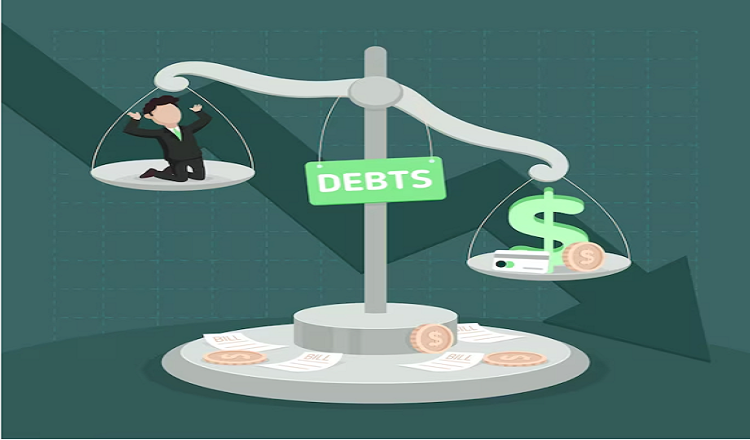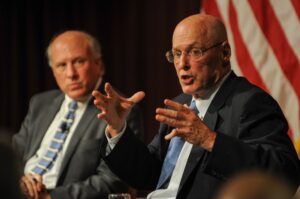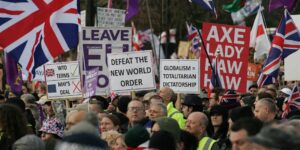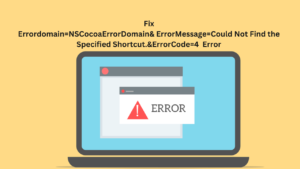The impact of political decisions on economic stability

Are you sick of politicians always arguing about the economy and promising that their plans will make it better? Do you ever wonder if they really know what they’re talking about or if they’re just trying to get your vote? Well, you’re not alone! In reality, political decisions have a big effect on the stability of the economy, and it’s important to know how these choices can affect our everyday lives.
In this article, we’ll look more closely at how political choices affect the stability of the US economy. We’ll talk about how tax policies, government spending, trade policies, and monetary policies can affect the economy. We’ll also talk about the current state of the business and how it has been affected by recent political decisions. By the end of this piece, you’ll have a better idea of how politics affects our economic health, and hopefully, you’ll be able to have more informed political conversations in the future.
Now, let’s dive in and look at how political choices affect the economy of the United States. Get ready to laugh, learn, and maybe even question some of the choices lawmakers have made in the past.
Political Choices that Affect the Stability of the Economy A. Tax schemes
Politicians use tax policies as a key part of their job to run the economy. By changing tax rates, deductions, and exemptions, they can change how much money people have to spend or invest, which can affect economic growth and security. Another important policy area that can affect economic security is how the government spends money. By giving money to certain industries or projects, politicians can create jobs and help the economy grow, or they can cause inflation and a recession by giving money to the wrong places. Tariffs and trade deals can also have an effect on the economy by changing how goods and services move across borders. Lastly, monetary policies like changing interest rates and controlling the amount of money in circulation can affect how people borrow and give, which in turn can affect economic activity. To make good decisions about economic policy and to predict how the economy might react to political decisions, it’s important to know how these policies work and how they might affect the economy.
Effects of Tax Laws
Governments use tax policies as a key part of how they run the economy. Politicians can change how much money people and businesses have to spend or invest by changing tax rates and adding or taking away benefits. Tax policies can have a big effect on economic stability because tax changes can either help or hurt economic growth, based on how they are put into place. The Tax Reform Act of 1986, which simplified the tax code and helped the economy grow, is one example of how tax policies have affected the US economy. Another is the Bush tax cuts of 2001, which led to a budget deficit and helped cause the Great Recession. Today, tax policies like the Tax Cuts and Jobs Act of 2017 continue to have a big effect on the security of the economy and are discussed and analysed all the time.
Effects of what the government spends
Government spending is another important area of policy that can affect the security of the economy. By giving money to certain industries or projects, the government can create jobs and boost economic growth, or it can cause inflation and a recession by giving money to the wrong places. How the money is spent by the government has an effect on the security of the economy. Some programmes have a bigger effect than others. Infrastructure spending, for example, can create jobs and boost output, while social welfare programmes can raise people’s living standards and make incomes more equal. The New Deal programmes of the 1930s, which helped pull the country out of the Great Depression, and the American Recovery and Reinvestment Act of 2009, which tried to boost economic growth after the Great Recession, are both examples of how government spending has affected the US economy. Today, government spending policies, such as those for pandemic aid and investing in infrastructure, are closely watched to see how they might affect the economy.
How trade policies affect people
Tariffs and trade agreements are examples of trade policies that can have a big effect on the economy by changing how goods and services move across countries. When trade policies are used well, they can create new jobs and open up new markets, which helps the economy grow and stay stable. But trade policies that aren’t done well can have bad results, like fewer exports and higher prices for customers. The North American Free Trade Agreement (NAFTA), which boosted trade between the US, Canada, and Mexico, and the current trade tensions with China, which have led to tariffs and slowed down the economy, are both examples of how trade policies have affected the US economy. Today, trade policies like international trade agreements and the ongoing trade disputes with China are carefully watched to see how they might affect the stability of the economy.
How monetary policies affect things
By changing how people borrow and give, monetary policies like changing interest rates and controlling the amount of money in circulation can have a big effect on the stability of the economy. When done right, monetary policies can help the economy grow and stay stable by keeping inflation in check and encouraging people to spend. But bad choices about monetary policy can cause recession, high unemployment, or even hyperinflation. The Federal Reserve’s response to the 2008 financial crisis was to lower interest rates and use quantitative easing to stabilise the economy. The Fed’s recent decision to raise interest rates in response to economic growth and low unemployment is another example of how monetary policies have affected the US economy. Today, current monetary policies, like those about inflation goals and pandemic relief, are closely watched to see how they might affect the stability of the economy.
Conclusion
In the end, political choices have a big effect on the stability of the economy in the United States. Tax policies, government spending, trade policies, and monetary policies are all important ways that governments can affect the economy. Depending on how they are put into place, these policies can help or hurt the security of the economy. The Tax Reform Act of 1986, the New Deal programmes of the 1930s, NAFTA, and the Fed’s response to the 2008 financial crisis are all examples of how political choices affect economic stability in the US.
Going forward, it will be important to keep looking into how political choices affect the stability of the US economy. In the future, researchers can look into the long-term effects of certain policies and how they affect different parts of the business in more depth. Also, study can focus on finding the best tools for promoting economic stability and dealing with income inequality. As long as the US economy has problems, continuing study in this area will be important for informing policy decisions and promoting long-term growth and stability in the economy.
Read More You May Like:







